On March 7, the Graduate Employee Organization (GEO) at the University of Massachusetts held a rally outside Haigis Mall in support of contract negotiations with the University. The organization is seeking a $400 housing stipend and higher wages to compete with inflation and the rising cost of living.
GEO is a unit of United Auto Workers Local 2322 and was recognized as a union by UMass in 1990. It works to represent research assistants, teaching assistants and other graduate student employees.
At the start of the rally, morale was high as union organizers handed out chant sheets and signed members in. Supporters talked and laughed amongst themselves, holding signs with slogans such as “Housing 4 all” and “Grad students deserve a livable wage.”
Isuru Herath, a teaching assistant and graduate student in the labor studies department, said that he likes being part of the union because he does not “have to rely on the goodwill of the administration.”
“UMass has directly contributed to the housing crisis by continuing to increase enrollment without ensuring that more housing units were built in the region,” Madison Albano, a graduate student in the history department and GEO’s membership organizer, said. “The two new units that they have offered, like the new Fieldstone Apartments, are at market rates that are completely unaffordable for graduate students.”
On the Fieldstone Apartments website, a graduate studio apartment is advertised as $1,900 per month. Over a year, this would be $22,800.
“On a 20-hour contract, the current GEO minimum [salary] is $24,822 per year,” Albano said. ”This is barely over half of the living wage in the region.”
Off-campus housing is equally unaffordable for graduate students working at the University, the protesters explained. The Massachusetts Institute of Technology’s Living Wage Calculator reports that living in Hampshire County requires an income of $47,681 before taxes annually. This number increases for people with children.
“A lot of our workers are going hungry. We have workers that are actually living in housing conditions filled with mold,” Herath said.
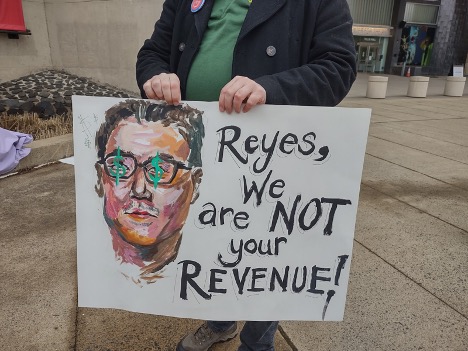
Existing challenges are heightened for international students and those with families as well.
“It costs a lot to live in this area. Being from a foreign country, you need to search for a room or for a place to stay from abroad, which is almost impossible,” Kris Diachenko, a graduate student in the German & Scandinavian studies department, said.
As an international student from Russia, Diachenko emphasized the lack of flexibility she has when it comes to securing housing.
“As a foreigner, I don’t have a car, so I cannot move around here freely and I cannot just live somewhere else. I need to stay in Amherst or Northampton,” Diachenko said. “It takes a substantial part of my salary to pay for housing and throughout the summer, I don’t receive anything, so I have to save it in advance and I don’t know how I’m going to survive this summer.”
The speakers condemned the University for not using surplus funding on housing stipends for their graduate students.
“[UMass] may brag about [the University’s] economic growth to their Board of Trustees [but] the workers who generate this wealth suffer,” Albano said.
Through their discussions with various graduate students, GEO found that many are relying on the Amherst Survival Center for food and are renting out living rooms to afford housing in the area.
“While we work to make UMass a distinguished, wealthy and prestigious school, we are living in poverty,” Albano said.
After the rally outside, protesters marched into the Whitmore Administration building. A group entered the chancellor’s office and attempted to hand him the petition, which was accepted by a secretary. The group stayed in the hallway, occasionally chanting with a bullhorn, until 5 p.m., when the chancellor’s office closed.
According to Albano, the organization collected “1,400 signatures from GEO members, undergrads, faculty and community members.” GEO will continue to hold weekly bargaining committee meetings through the semester as they continue to negotiate with the University.
“We will not continue to accept rising rents without a housing stipend or real solutions to the housing crisis from UMass,” Albano said.
Bella Astrofsky can be reached at [email protected]. Sophie Machernis can be reached at [email protected]. Andrew Venditti can be reached at [email protected].

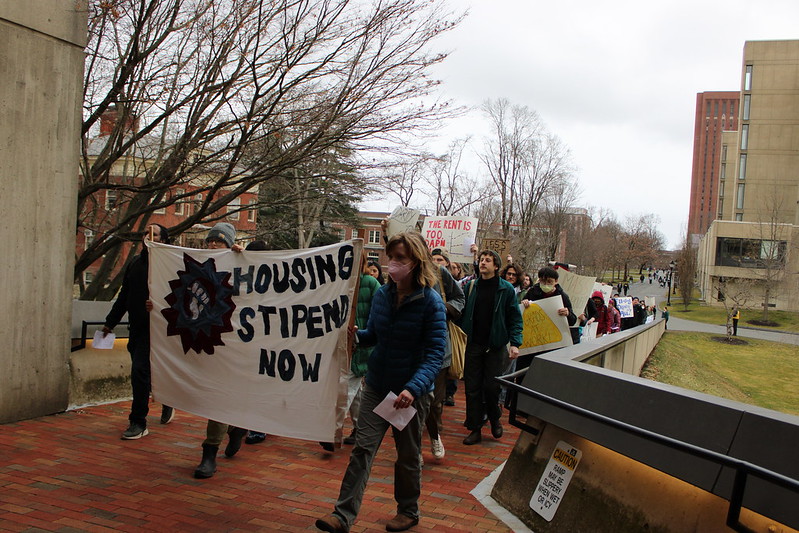




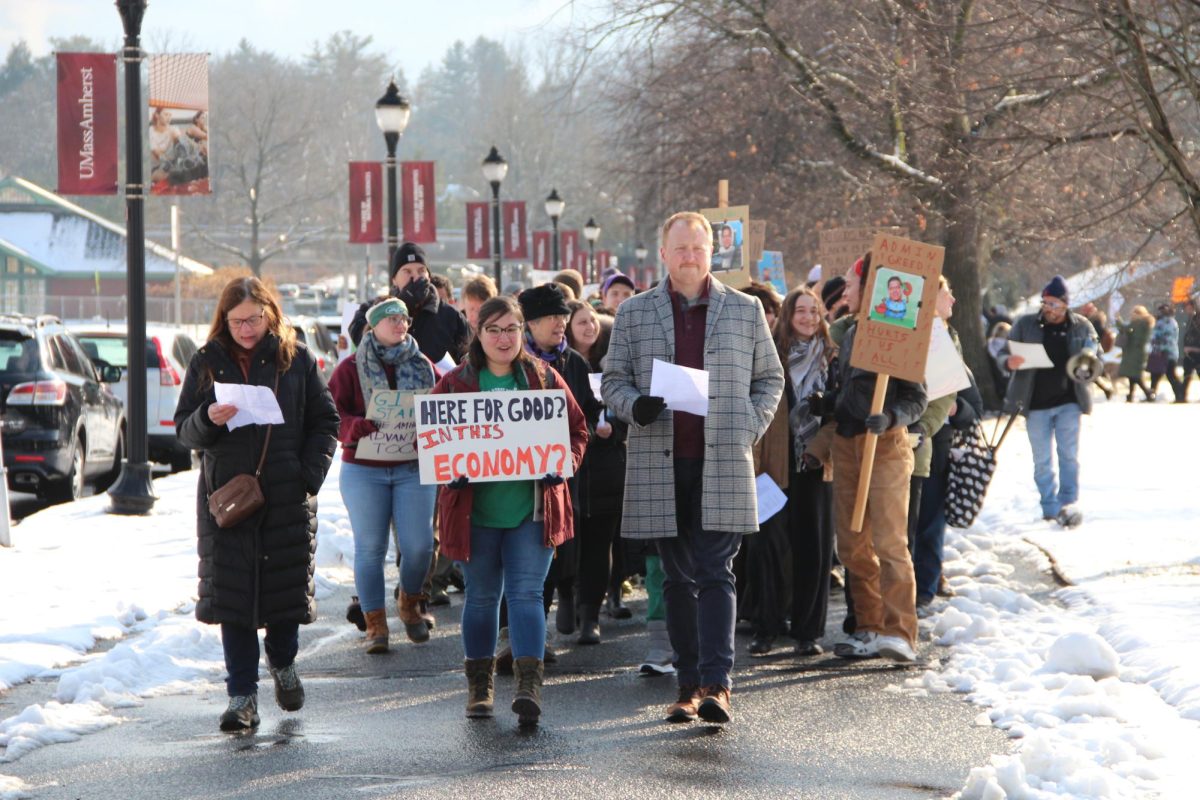
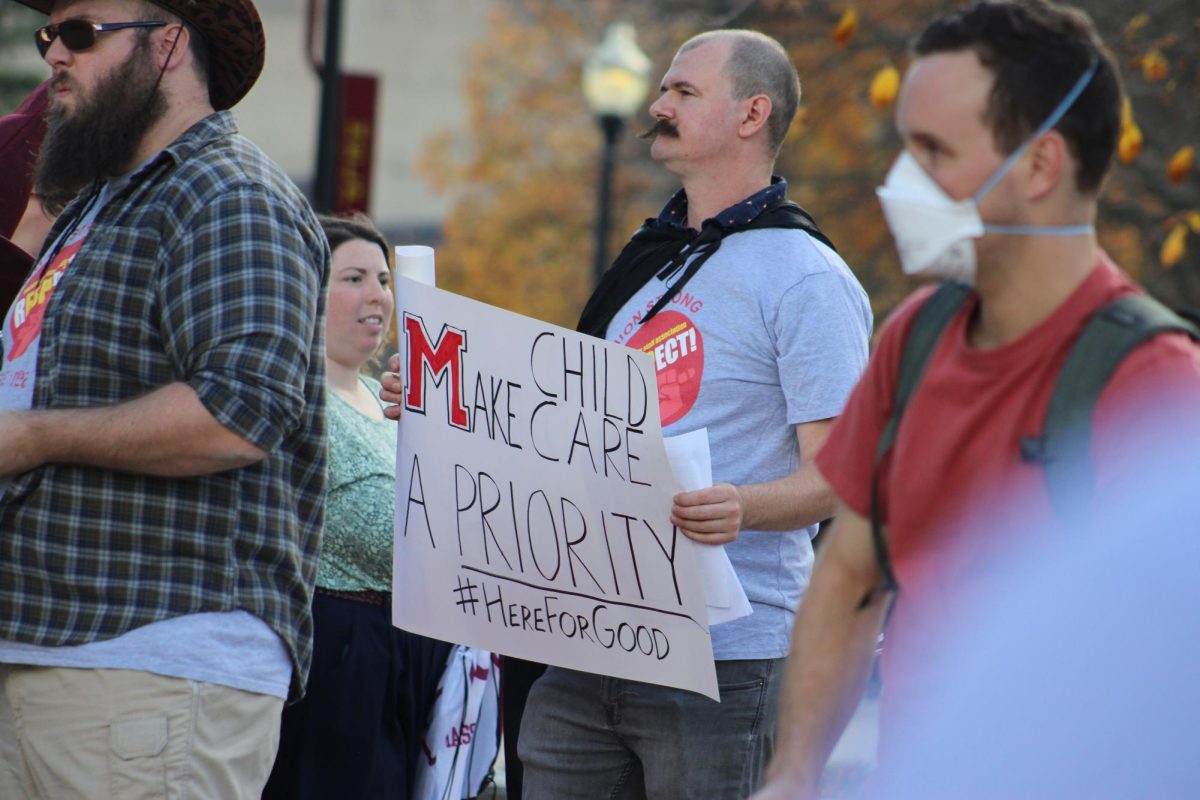

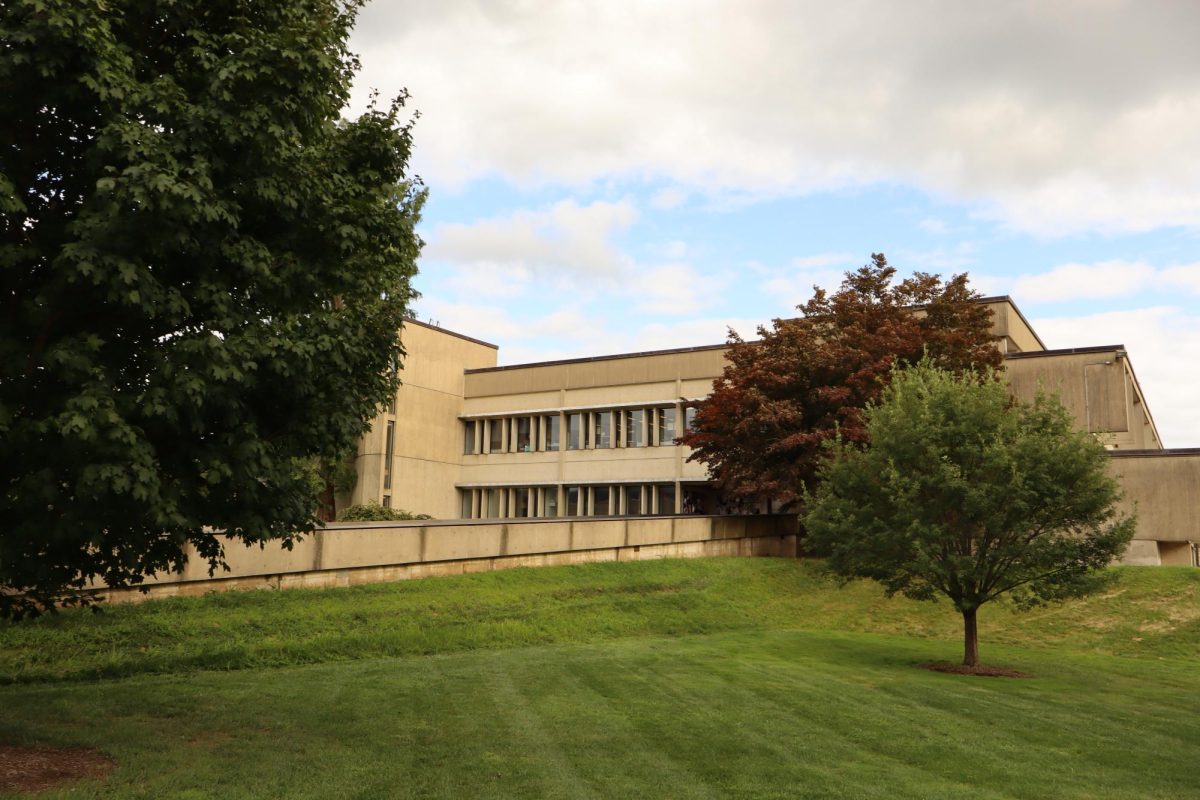













Dr. Ed • Mar 12, 2024 at 11:52 am
Get your facts right — GEO started organizing in 1990.
It was not recognized until much later.
And what about the other half of the graduate students who don’t have assistantships? Is their rent any less?